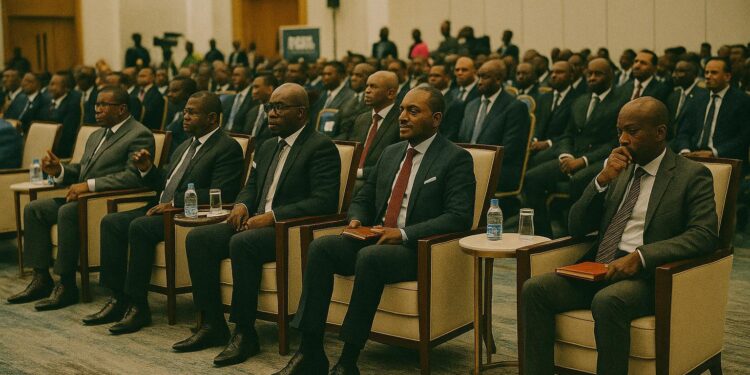Strategic Rationale for an Electrified Future
Few policy domains galvanise national consensus in Congo-Brazzaville as reliably as the quest for uninterrupted power. Embodied in the recently unveiled Project for the Improvement of Electricity Services, or PASEL, the government’s agenda aligns with broader multilateral targets on poverty alleviation and industrial diversification. Brazzaville’s energy ministry has described the scheme as the “concrete, structured and targeted response” required to surmount recurrent outages, framing electricity as both a social good and a strategic asset for regional competitiveness (Congo Ministry of Energy, 2025).
Financial Architecture and Governance Safeguards
With a total envelope of one hundred million United States dollars, PASEL constitutes roughly one tenth of the World Bank’s active portfolio in the Republic, signalling a high level of fiduciary confidence. World Bank sector director Jie Tang noted that the project was prepared in fewer than twelve months, an unusually swift gestation that reflects both the government’s organisational resolve and the institution’s emphasis on operational efficiency (World Bank 2025 Project Paper). A dedicated steering committee chaired by the Ministry of Energy anchors oversight, while a performance-based disbursement matrix is designed to reward measurable improvements in loss reduction and billing accuracy.
Technical Upgrades from Coast to Capital
PASEL’s engineering core is the reinforcement of the high-voltage corridor linking Pointe-Noire and Brazzaville, a spine that currently transports nearly seventy percent of nationally generated electricity. Six additional high-tension transformers and an intelligent metering system will increase load-bearing capacity and allow grid operators to localise faults in real time. According to preliminary feasibility studies, the dual-city upgrade could shave average outage duration by almost forty percent within three years, a projection that dovetails with International Energy Agency modelling for Central Africa (IEA Africa Energy Outlook 2022).
Commercial Reforms and Loss Reduction
Technical hardware alone cannot stabilise a power system; commercial discipline is equally pivotal. The state-owned utility, Énergie Électrique du Congo, has signalled readiness to overhaul its revenue cycle by deploying smart meters in urban clusters and by automating reconciliation between consumption data and billing. Minister Emile Ouosso argued during the launch ceremony that reducing non-technical losses is indispensable if the country is to escape the “annoyance of blackouts” that impede industrial output and household welfare. An internal audit commissioned by the utility in 2024 placed aggregate system losses at a little over thirty percent, of which two thirds were classified as commercial.
Toward Universal Access and Climate Resilience
Beyond metropolitan reliability, PASEL also funds the drafting of a National Electrification Strategy and a Least-Cost Development Plan intended to accelerate rural connections in line with the Sustainable Development Goal on universal energy access. Those documents will serve as technical compasses for future grid extensions and for mini-grid deployment in remote districts. Importantly, the strategy integrates climate-resilient standards, reflecting Congo-Brazzaville’s commitment under the Paris Agreement to lower the carbon intensity of its growth trajectory. Analysts at the African Climate Policy Centre describe such synergies between access and mitigation as “the new frontier of energy diplomacy on the continent” (ACPC Policy Brief, 2023).
Diplomatic Implications for Regional Integration
The project’s resonance extends beyond national borders. Reinforced transmission capacity along the Atlantic-to-capital corridor will enable the Republic to participate more robustly in the Central African Power Pool, thereby opening prospective electricity trade with Cameroon, Gabon and the Democratic Republic of Congo. Multilateral financiers anticipate that cross-border exchanges could help smooth demand peaks and monetise surplus hydroelectric output from the Sounda and Chollet projects once they come online. For Brazzaville, this represents not only a commercial opportunity but also a platform to demonstrate leadership in a region where energy politics often mirror broader geopolitical alignments.
Measuring Success and Managing Expectations
Success will inevitably be judged by citizens’ lived experience: fewer unscheduled outages, transparent billing and a perceptible reduction in diesel-generator reliance for businesses. Yet development practitioners caution against assuming linear progress in a sector susceptible to exogenous shocks, from commodity-price volatility to extreme weather events. In that regard, the performance-based design of PASEL offers a pragmatic mechanism: funds will flow in tandem with documented reforms, providing both incentive and accountability. While the roadmap is ambitious, its phased milestones allow room for adaptive policy responses, a hallmark of resilient project management.
A Pragmatic Beacon for Congolese Modernisation
In the final analysis, PASEL embodies a convergence of domestic political will and multilateral expertise, positioning electricity as an engine of socio-economic transformation rather than a recurrent bottleneck. By pairing tangible infrastructure upgrades with governance reforms, the initiative sends a reassuring signal to private investors exploring downstream opportunities in mining, agri-processing and digital services. The lights in Brazzaville and Pointe-Noire will not illuminate overnight, yet the trajectory charted by the government and its partners suggests a disciplined march toward a brighter, more resilient and more prosperous Republic of Congo.











































